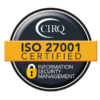Hi, Wes here. I was reading an article in our local newspaper and I wanted to bring it to your attention. It’s exciting news, I think. About new potential treatment for Parkinson’s disease. Here’s the article as it appeared in my paper, but I noticed that it did appear in a lot of other papers and I’ll include a link to it as well so, you can read the full story.
The headline says “Trials sparks hope over Parkinson’s disease” and I’ll read part of this to you. It says it may be possible to restore brain cells damaged by Parkinson’s disease and reverse a patient’s condition something no current treatment can do, according to British researchers who conducted potentially ground-breaking clinical trials. So, there’s cautions of course with this and with any study. It was a small study. It was only 41 patients and the results are still early. But the results, “the approach which delivers special growth factor proteins to restore failing brain cells are very promising.”
It was done by a doctor Allen Whone in the UK, and again, “this represents some of the most compelling evidence yet that we may have a means to possibly reawaken and restore dopamine brain cells that are gradually destroyed in Parkinson’s,” he said. One Parkinson’s expert in the United States was cautiously optimistic about this cellular reawakening. In the trial, the researchers focused on a naturally occurring protein in the brain called Glial cell line derived neurotrophic Factor (GDNF). It was thought that boosting GDNF and brain tissue might help regenerate dying brain cells on people with Parkinson’s and thereby reverse the condition.
Of course, the trouble with doing medication to the brain is there is the so-called Brain Blood Barrier. It’s difficult to get medication into the brain. And that posed the problem. What they did, the British team used robot-assisted surgery to place four tubes into the brains of six Parkinson’s patients, so that GDNF could bypass this barrier and be infused directly to the defective brain area.
Once the safety of the procedure was ascertained, the trial was expanded to include 35 more patients. That’s where they got their total of 41. Half of these patients receive the GDNF and have received a placebo. After the first nine months, patients in both groups were offered it for a further nine months. At the 9-month point of follow-up, trial results were mixed. While there were some encouraging signs of improvement, there were no significant differences between them in the placebo group. However, a comparison of brain scans conducted before the trial and then at nine months showed that the GDNF did seem to be healing the damage to dopamineproducing brain cells.
Nine months after therapy, the patients who received GDNF experienced a hundred percent improvement in a key area of brain affected by Parkinson’s, suggesting the treatment was starting to reawaken and restore damaged brain cells. The real change came after 18 months after treatment when all the participants have received GDNF. At this point, both groups showed moderate to large improvements and their Parkinson’s symptoms compared with before the study.
This indicates that the treatment might indeed have long-term beneficial effects. However, they caution, at the 18-month mark, there was no longer a comparison group because both groups were now receiving the GDNF. So, it wasn’t blinded and so it could be as a result of the placebo effect. And as with any study, you know, you have to wait for further results. It has very small sample size. But, I think it’s a great first step here. Wouldn’t this be terrific if the horrible disease of Parkinson’s could actually be somewhat reversed?
Let me read a couple of conclusions. Brain imaging showed that GDNF appeared to have brought about regeneration of the key cells whose death leads to the progressive symptoms of Parkinson’s disease. While the results are not clear-cut, the study has still been a resounding success. These, by the way, they were first published in the journal Brain in February and as well as the Journal of Parkinson’s Disease. So, certainly look there to find the original article.
What I also wanted to say is that in our panel, the Rare Patient Voice panel, we have 340 Parkinson’s patients and 373 Parkinson’s caregivers in the US. So please, if you’re interested in finding their reaction to this or any other new treatments that you or your clients may be looking at please give us a call. We’ll be happy to arrange for your research agencies to get the opinions of the Parkinson’s folks. These are folks we’ve met at Parkinson’s walks, Parkinson’s conferences and through partnering with some of the Parkinson’s advocacy groups. So, we’re happy to help. We’re excited to see a possibly a step towards reversal. Wouldn’t that be terrific? So anyway, thanks a lot.







